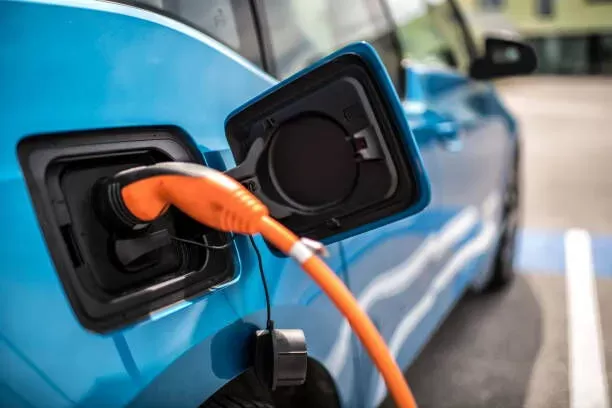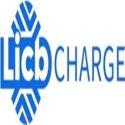Notifications

8 minutes, 7 seconds
-114 Views 0 Comments 0 Likes 0 Reviews

White-Label EV Charging: A Growing Opportunity for Businesses
As a professional EV charger manufacturer in China, Topper Company provides dependable electric vehicle charging station equipment and comprehensive charging solutions.
As the electric vehicle (EV) market expands rapidly, the demand for convenient and reliable EV charging solutions has skyrocketed. Businesses looking to tap into this growing market are finding white-label EV charging to be a lucrative opportunity. This innovative approach allows companies to offer branded EV charging stations without having to build the infrastructure from scratch. In this article, we'll delve into the concept of white-label EV charging, its benefits, how it works, and how businesses can leverage it to strengthen their brand while providing exceptional customer service.
White-label EV charging refers to the practice of using an existing EV charging infrastructure and rebranding it with a company's own identity. Much like how private-label products are manufactured by one company and sold under another brand’s name, white-label EV charging enables businesses to offer EV charging solutions without needing to develop the technology or manage the network themselves.
With a white-label solution, companies can brand the hardware, software, and network management systems to reflect their brand. This allows businesses in sectors like retail, hospitality, and energy to quickly establish a branded EV charging network, saving both time and money, while capitalizing on the growing demand for EV infrastructure.
The most significant advantage of white-label EV charging is the speed with which companies can roll out their networks. Rather than spending months or years on infrastructure development, businesses can deploy an existing platform in a matter of weeks, quickly seizing market opportunities.
Creating an EV charging infrastructure in-house requires significant investment in personnel—engineers, technicians, software developers, and more. White-label solutions eliminate these costs, as the infrastructure and software are already developed and maintained by the provider. Ongoing updates, network monitoring, and troubleshooting are handled by the service provider, reducing the need for in-house resources.
White-label EV charging offers businesses the chance to fully customize their charging stations with their branding. This could include logos, colors, and tailored user interfaces, creating a unique and recognizable experience for customers. A branded charging network reinforces brand loyalty and can form a lasting emotional connection with eco-conscious consumers.
By offering essential services like EV charging, businesses can build customer engagement and loyalty. For example, a hotel chain that provides branded charging stations not only gives guests convenience but also demonstrates a commitment to sustainability, which could lead to repeat customers and increased brand reputation.
Outsourcing the technical aspects of EV charging infrastructure reduces the risks of technology failures, regulatory changes, and maintenance challenges. White-label providers, with their expertise, handle these complexities, allowing businesses to focus on their core operations.
The first step involves working with a white-label provider to brand the EV charging stations according to the business's identity. This includes adding logos, customizing user interfaces, and ensuring that the charging stations align with the business’s image. Businesses can create a fully tailored experience, from charging station designs to mobile apps.
The white-label provider integrates the necessary hardware—charging units, cables, connectors, and payment systems—into the stations. These systems are designed to be compatible with various EV models and meet high-volume charging demands.
Software plays a crucial role in managing the charging stations and providing a seamless customer experience. The software integrates features like real-time availability tracking, billing, customer support, and loyalty programs. It also allows businesses to monitor station performance and manage maintenance.
Once everything is set up, the installation of charging stations takes place. White-label providers typically handle the installation process, ensuring stations are properly connected to the grid and meet local regulations. Locations could range from parking lots and shopping malls to office buildings and public spaces.
White-label providers also offer ongoing support and maintenance services. This includes updates, troubleshooting, and performance monitoring. If any issues arise, the service provider’s support team can quickly resolve them, minimizing downtime and ensuring a high-quality customer experience.
Several industries are already using white-label EV charging to provide sustainable and customer-friendly services:
Retail Chains: Large retailers are installing branded EV chargers to attract eco-conscious consumers and offer convenience while shoppers charge their vehicles.
Hospitality Industry: Hotels and resorts are incorporating white-label EV charging stations to attract EV-driving guests and differentiate themselves from competitors.
Corporate Offices: Companies with large office complexes are providing EV charging as part of their sustainability initiatives, enhancing employee satisfaction while supporting environmental goals.
While white-label EV charging offers many benefits, there are some challenges businesses need to be mindful of:
Upfront Costs: While the solution reduces ongoing development costs, businesses still need to invest in hardware installation, customization, and network integration.
Regulatory Compliance: Businesses must ensure that their charging stations meet local regulatory requirements. Providers typically handle compliance, but staying informed about evolving laws is crucial.
Network Management: Businesses must manage customer-facing aspects like pricing, loyalty programs, and promotions, which requires careful planning and strategy.
White-label EV charging offers businesses an innovative way to participate in the growing EV market without investing heavily in infrastructure. By rebranding existing solutions, companies can build brand equity, enhance customer loyalty, and promote sustainability while reducing operational risks. As the EV market continues to grow, the white-label charging model will undoubtedly play a significant role in shaping the future of EV infrastructure.Know more about Google SEO Directory
China EV Chargers EV Charger Manufacturer Smart EV Chargers Electric Car Chargers Electric Vehicle Chargers Electric Car Charging Stations

